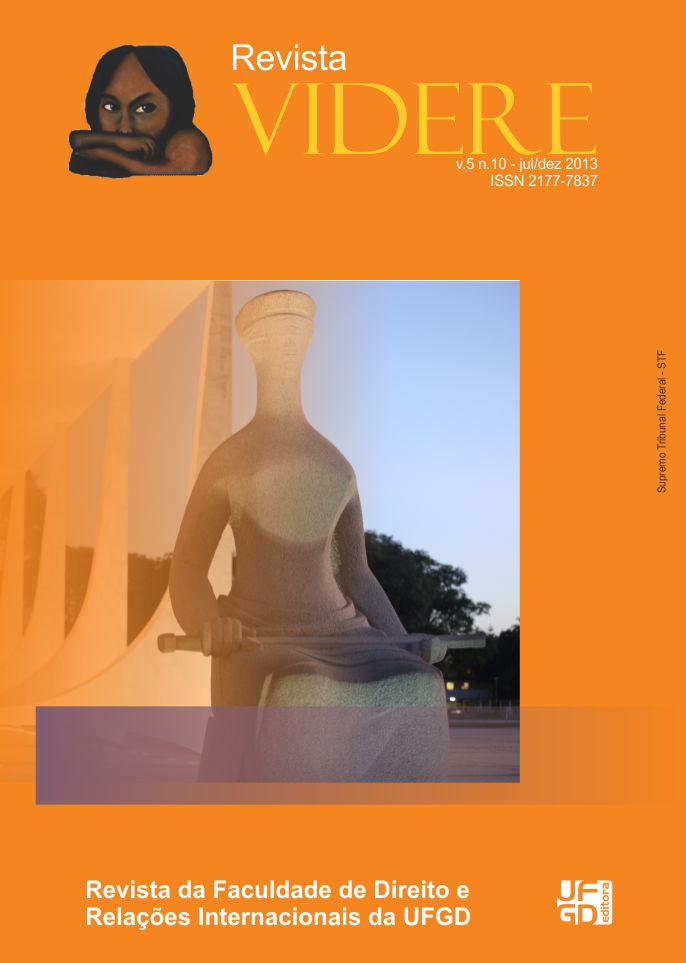O transexual, a alteração de prenome e gênero no registro civil e o entendimento dos tribunais
Keywords:
Transexualidade. Direitos fundamentais. Jurisprudência. Bioética.Abstract
Diante da diversidade social e cultural existente, especialmente no que diz respeito à opção sexual do indivíduo e sua exteriorização perante a sociedade, o trabalho abordará uma dessas situações, a dos transexuais. Este artigo não tem a pretensão de discutir o movimento histórico, comportamental, médico, ético ou religioso sobre o tema, mas tão somente analisar a postura dos Tribunais de Justiça brasileiros frente às demandas, cada vez mais frequentes, dos transexuais na efetivação de seus direitos fundamentais garantidos constitucionalmente, em particular, o da dignidade da pessoa humana, que no caso deles, passa pelo direito à alteração, em seus documentos civis, do prenome e de gênero, adequando o registro à sua real condição psicológica e física. Nestes termos, trataremos das decisões do Poder Judiciário no decorrer dos últimos anos, seus fundamentos e a tendente mudança de paradigma a partir da Constituição Federal de 1988. O tema está longe de ser pacífico, mas, alguns Tribunais de vanguarda, como o do Rio Grande do Sul, impulsionam a discussão no cenário nacional, levando os operadores do Direito a refletirem de maneira ampla e sem preconceito sobre este tema de interesse nacional, dando esperanças de uma vida melhor a esses indivíduos. Dessa forma, o artigo tratará do pensamento jurisprudencial adotado em nosso país sobre a possibilidade, ou não, de o transexual ter seus documentos civis alterados, adequando o prenome e o gênero à sua real condição humana, com ou sem a realização da cirurgia de transgenitalização.Downloads
Downloads
Published
How to Cite
Issue
Section
License
Authors must accept the publication rules when submitting the journal, as well as agree to the following terms:
(a) The Editorial Board reserves the right to make changes to the Portuguese language in the originals to maintain the cultured standard of the language, while respecting the style of the authors.
(b) Authors retain the copyright and grant the journal the right to first publication, with the work simultaneously licensed under the Attribution-NonCommercial-ShareAlike 3.0 Brazil (CC BY-NC-SA 3.0 BR) that allows: Share - copy and redistribute the material in any medium or format and Adapt - remix, transform, and create from the material. CC BY-NC-SA 3.0 BR considers the following terms:
- Attribution - You must give the appropriate credit, provide a link to the license and indicate whether changes have been made. You must do so under any reasonable circumstances, but in no way that would suggest that the licensor supports you or your use.
- NonCommercial - You may not use the material for commercial purposes.
- Sharing - If you remix, transform, or create from material, you must distribute your contributions under the same license as the original.
- No additional restrictions - You may not apply legal terms or technological measures that legally restrict others from doing anything that the license permits.
(c) After publication, authors are allowed and encouraged to publish and distribute their work online - in institutional repositories, personal page, social network or other scientific dissemination sites, as long as the publication is not for commercial purposes.



















